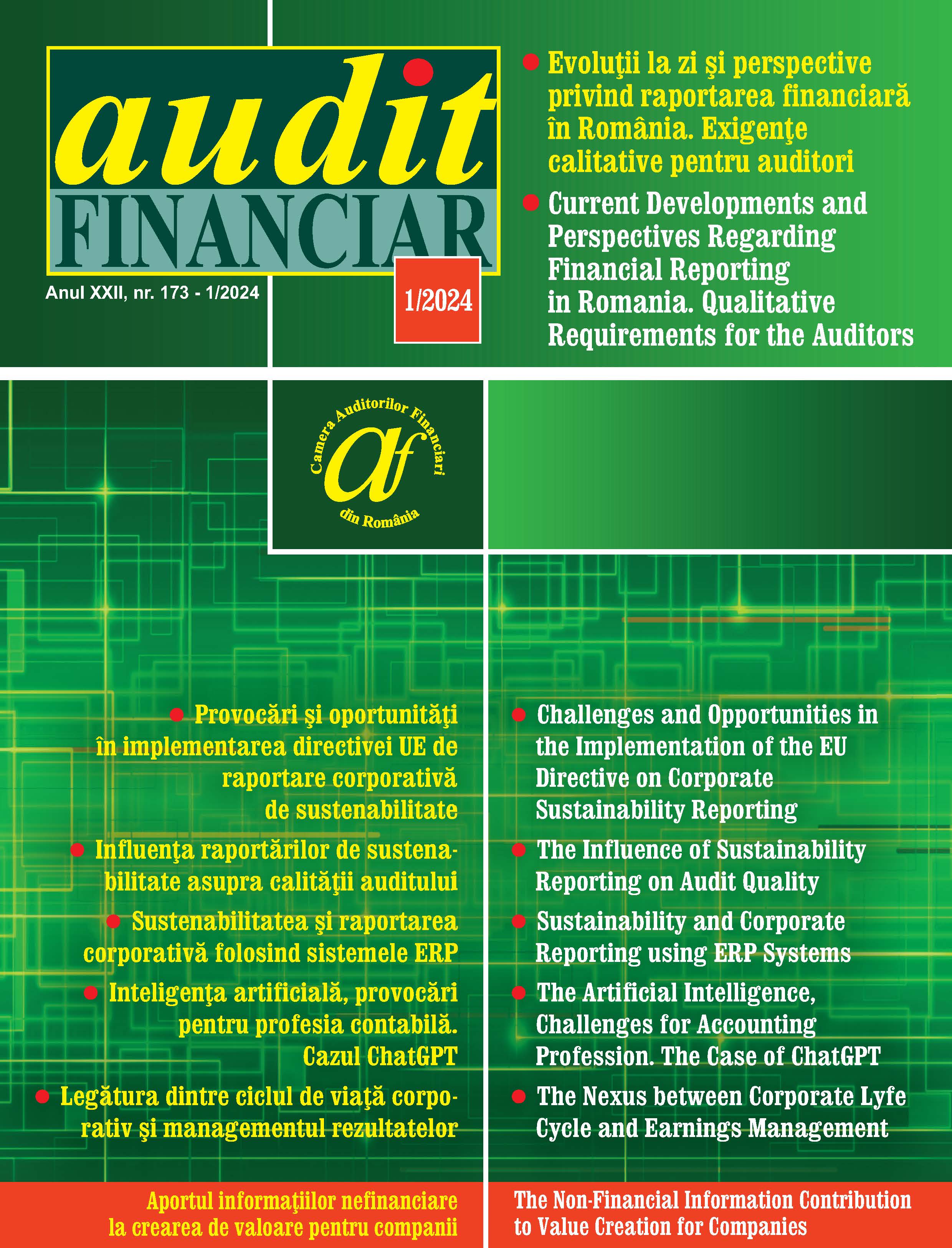Provocari si oportunitati in implementarea directivei UE de raportare corporativa de sustenabilitate
Challenges and Opportunities in the Implementation of the EU Directive on Corporate Sustainability Reporting
Author(s): Ovidiu Constantin Bunget, Alin-Constantin Dumitrescu, Oana Bogdan, Valentin BurcăSubject(s): Business Economy / Management, Accounting - Business Administration
Published by: Camera Auditorilor Financiari din România
Keywords: sustainability; sustainable reporting; assurance missions;
Summary/Abstract: The development of companies in a sustainable manner is a desire of both company’s management and regulators who make sustained efforts to develop and standardize non-financial reporting. In the context in which the new European Directive regarding sustainability requires companies to report in accordance with the mandatory standards of sustainable reporting of the EU, including an external assurance of sustainability reporting that is necessary, the present research aims to analyze the perception of professional practitioners, members of the Chamber of Financial Auditors of Romania (C.F.A.R.) regarding the challenges and opportunities of implementing the European Directive on Corporate Sustainability Reporting. The main objective is to identify the main areas of concern regarding the efforts to train auditors in carrying out assurance missions related to non-financial situations, considering the new European Directive on non-financial reporting and, respectively, the adjacent developments carried out by the IASB and EFRAG in the sphere of the standardization of non-financial reporting. The present research proposes an analysis of the associations between the main defining elements of the auditor's capabilities (technological factor, human factor, audit processes) and, respectively, the defining elements of the auditor's profile outlined under the legislative framework, governmental monitoring and control mechanisms or the characteristics the economic environment, which influences the audit opinion. The main results obtained underline the fact that auditors are not yet prepared to provide assurance services in relation to sustainability reports, both from the perspective of defining and implementing robust audit processes, and from the perspective of the low degree of adequacy of the audit systems used or from the perspective of human factor knowledge and skills gaps. So, this reality confirms a state of fact that must concern professional bodies and, at the same time, governmental bodies in terms of the degree of involvement in auditor training activities and, respectively, the promotion of professional guidelines.
Journal: Audit Financiar
- Issue Year: 22/2024
- Issue No: 1 (173)
- Page Range: 116-126
- Page Count: 11
- Language: English, Romanian

